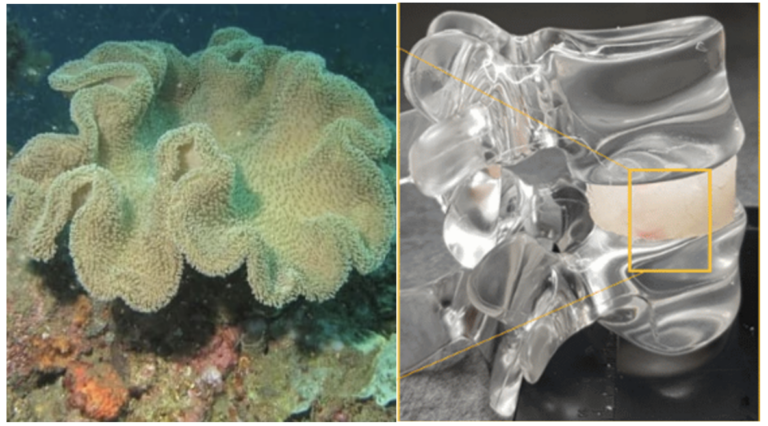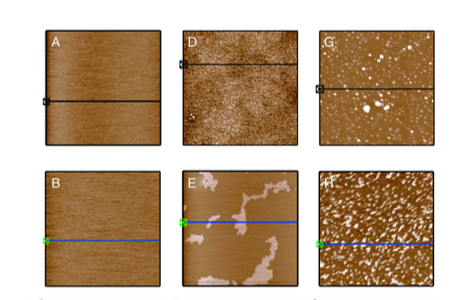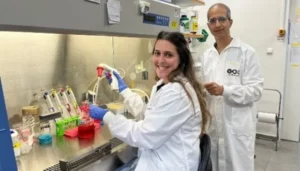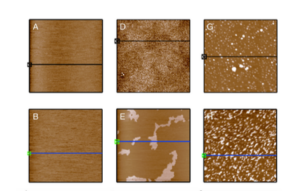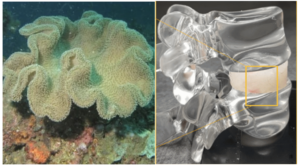Université Ben Gourion du Néguev : et si l'élixir de jeunesse était en nous ?

[:fr]
Et si le secret pour inverser le vieillissement n’était pas un élixir de vie, mais l’identification des gènes qui contrôlent le vieillissement, puis l’inversion des dommages qui leur sont causés ? C’est l’objet des recherches du Dr Debra (Deborah) Toiber de l’université Ben Gourion du Néguev (BGU) sur un gène clé, le SIRT6. «Ces dernières années mes recherches se sont concentrées sur le gène SIRT6, dont nous avons découvert qu’il joue un rôle important dans le processus de vieillissement», explique le Dr Toiber du Département des sciences de la vie de la Faculté des sciences naturelles et du Centre Zlotowski pour les neurosciences de la BGU.
En utilisant leur connaissance du gène SIRT6, Debra Toiber et son équipe ont pu identifier les gènes qui pourraient prédire si un cerveau évolue vers un vieillissement sain ou un vieillissement pathologique. De plus, ils ont pu déterminer quels gènes sont les meilleurs candidats pour des thérapies ciblées, ceux dont les dommages peuvent être inversés.
Ce projet a reçu un financement du Conseil européen de la recherche (CER) dans le cadre du programme de recherche et d’innovation Horizon 2020 de l’Union européenne (N° 849029).
Dans son étude récente, le Dr Toiber et son équipe ont identifié une poignée de gènes altérés dans le cadre d’un vieillissement pathologique, mais pas dans le cadre d’un vieillissement normal. De plus, à partir de ces gènes, certains peuvent être inversés par des interventions telles que la restriction calorique. Le Dr Toiber et son équipe ont découvert dans des études antérieures que le SIRT6 joue un rôle déterminant dans la réparation de l’ADN et sert de premier intervenant dans les cassures double brin de l’ADN, se mettant immédiatement au travail mais signalant également à d’autres protéines capables d’aider à réparer les dommages.
Debra Toiber pense que l’une des principales causes du vieillissement est l’accumulation de dommages non réparés à l’ADN, qui peuvent entraîner des maladies neurodégénératives telles que la maladie de Parkinson et d’Alzheimer. Comme il y a de nombreux changements dans le vieillissement et dans ces pathologies, l’équipe du Dr Toiber a comparé des souris altérées par le SIRT6 à des souris normales, par rapport à des souris du même âge et par rapport à des souris plus âgées.
Ainsi, à l’avenir, un test des changements dans un ensemble de gènes pourrait indiquer si nous nous dirigeons vers un vieillissement en bonne santé.
Le Dr Toiber est titulaire de la Chaire de développement de carrière Zehava et Chezy Vered sur la maladie d’Alzheimer et les maladies neurodégénératives. La recherche a été soutenue par la fondation David et Inez Myers, la Fondation israélienne pour la science et la High-tech (Grant N° 188/17 et 500/15), Broad-Israel Science Foundation Grant 1644/15.
Les autres chercheurs comprennent : Daniel Stein, Amir Mizrahi, Adam Saretzky, le Dr Alfredo Garcia Venzor, Zeev Slobodnik, Shai Kaluski et Monica Einav de l’Université Ben-Gurion, et Anastasia Golova, et le Dr Ekaterina Khrameev du Centre des sciences de la vie, Institut Skolkovo des sciences et de la technologie (Moscou, Russie).
Publication dans Aging 9 mars 2021
Traduction/adaptation Esther Amar pour Israël Science Info
[:en]
What if the secret to reversing aging is not an elixir of life but identifying the genes that control aging and then reversing the damage to them? That is the premise behind Ben-Gurion University of the Negev’s Dr. Debra Toiber’s research into one key gene – SIRT6.
“My research for the last several years has focused on unlocking the secrets of SIRT6, which we discovered plays a number of prominent roles in aging,” says Dr. Toiber of the Department of Life Sciences in the Faculty of Natural Sciences and BGU’s Zlotowski Center for Neuroscience.
In her latest study, Dr. Toiber and her team were able to identify a handful of genes that are affected in pathological aging, but not in normal aging. Moreover, from these genes, there are some that can be reversed by interventions such as calorie restriction.
Dr. Toiber and her team have found in previous studies that SIRT6 plays an instrumental role in DNA repair and serves as a first responder in DNA double strand breaks, immediately going to work but also signaling to other proteins to come help repair the damage. Toiber believes one of the main causes of aging is the accumulation of unrepaired DNA damage, which can lead to neurodegenerative diseases such as Parkinson’s and Alzheimer’s.
Since there are many changes in aging and in these pathologies, the Toiber group compared SIRT6-impaired mice to regular mice, both the same age and compared to older mice. Using their knowledge of SIRT6, they were able to narrow these changes down and discern the genes that could predict whether a brain is moving towards healthy aging or pathological aging. What is more, they were able to determine which genes are better candidates for targeted therapies – those whose damage can be reversed.
So, in the future a test for changes in a set of genes could tell us whether we are heading towards healthy aging.
Dr. Toiber holds the Zehava and Chezy Vered Career Developmental Chair in Alzheimer’s and neurodegenerative diseases.
The research was supported by The David and Inez Myers foundation, The Israel Science Foundation Grant nos. 188/17 and 500/15, and the High-tech, Broad-Israel Science Foundation Grant 1644/15. This project has received funding from the European Research Council (ERC) under the European Union’s Horizon 2020 research and innovation program (grant agreement No 849029).
Additional researchers include: Daniel Stein, Amir Mizrahi, Adam Saretzky, Dr. Alfredo Garcia Venzor, Zeev Slobodnik, Shai Kaluski, and Monica Einav from Ben-Gurion University, and Anastasia Golova, and Dr. Ekaterina Khrameev from the Center of Life Sciences, Skolkovo Institute of Science and Technology, Moscow, Russia.
Publication in Aging March 9th 2021
Ben-Gurion University of the Negev (BGU) is the fastest growing research university in Israel. With 20,000 students, 6,000 staff and faculty members, and three campuses in Beer-Sheva, Sde Boker and Eilat, BGU is an agent of change, fulfilling the vision of David Ben-Gurion, Israel’s legendary first prime minister, who envisaged the future of Israel emerging from the Negev.
The University is at the heart of Beer-Sheva’s transformation into an innovation district, where leading multinational corporations and start-ups eagerly leverage BGU’s expertise to generate innovative R&D.
BGU effects change, locally, regionally and internationally. With faculties in Engineering Sciences; Health Sciences; Natural Sciences; Humanities and Social Sciences; Business and Management; and Desert Studies, the University is a recognized national and global leader in many fields, actively encouraging multi-disciplinary collaborations with government and industry, and nurturing entrepreneurship and innovation in all its forms.
BGU is also a university with a conscience, active both on the frontiers of science and in the community. Over a third of our students participate in one of the world’s most developed community action programs.
[:]


